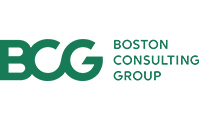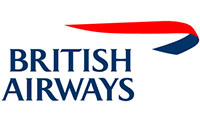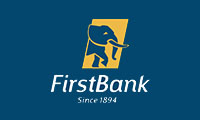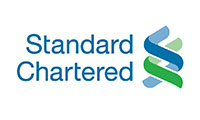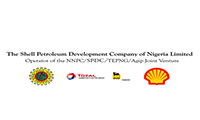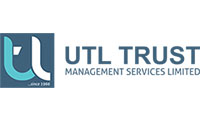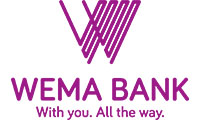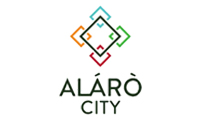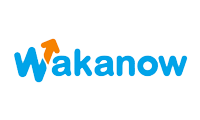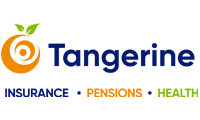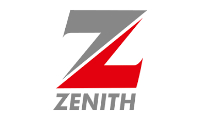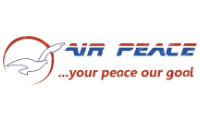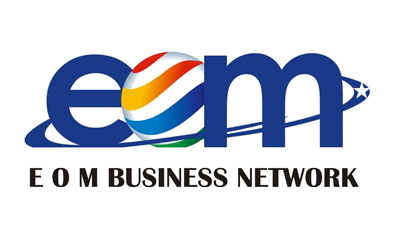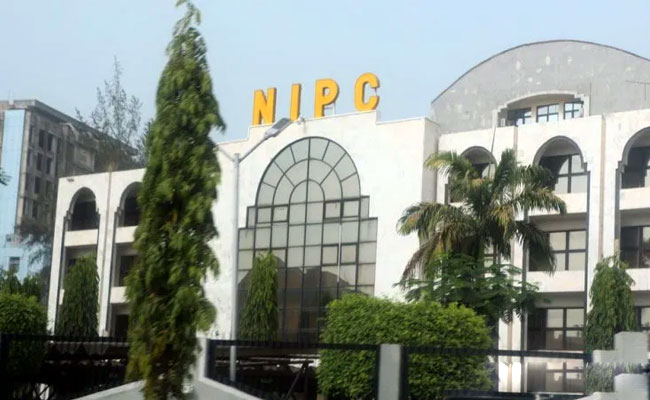
INTERVIEW: What NIPC Is Doing to Grow Nigeria’s Foreign Direct Investment
The Executive Secretary, Nigerian Investment Promotion Commission, Ms Yewande Sadiku recently granted an interview to Premium Times; below are excerpts of the interview:
Q: COVID-19 has virtually grounded the global economy. How much impact has it been on the business of investment promotion in Nigeria?
YEWANDE SADIKU: A lot! But, let me take you a little back to what the NIPC’s mandate is, so that you will understand the context in which I am saying this. NIPC, by mandate, was created to encourage, promote and coordinate investments. Looking at specific things in the mandate, there is nothing like securing any volume of investment. Attracting investment requires
the work of more than one person.
So, NIPC’s role is one of advocacy and engagement of the government and its agencies. But, the policies are written by the ministries, while the incentives are created by different organs. The NIPC has a role in helping the government understand the policies. In that sense, NIPC’s estimates are based on the work of those who have better resources. We had advised the government that a 30 to 40 percent decline in the foreign direct investment (FDI) was expected in 2020-2021, based on the work of the United Nations Conference on Trade and development (UNCTAD). They released a report recently that showed that in the first half of 2021,
FDI actually fell globally by about 49 percent. It is slightly worse than the trend we estimated. NIPC’s expectation is that there will be some recoveries in the third quarter of the year, which has come and gone. If there was any recovery in the quarter, it will be very modest, because of the reality of COVID-19.
But, COVID-19 has shown the dangers in concentrating manufacturing capacity in one country or region. It has also demonstrated the dangers in relying on others for things considered basic for a country. We believe many countries would be manufacturing a number of those things. If they cannot do it themselves, they would try to domesticate a part of the value chain, so that they are placed in a situation where they would not be left exposed. COVID-19 has also demonstrated the need for greater domestic investments. Like every country, we want foreign investments. But, we also want a large quantum of domestic investments. So, we want Nigerians to invest in their own country. The long and short of it is that COVID-19 was expected to have a lower effect on investment flows, just as it has a depressing effect on economic growth.
Countries need to react to that reality the same way they are reacting to economic growth. Because a lot of countries rely a lot on foreign investments, and because that is falling at the moment, a lot of the countries that got the foreign investments are also working on rebuilding the investment infrastructure in their own countries. So, it is normal that the competition will be much more intense.
Q: In one of your recent briefings this year, you said the quantum of investment flows reduced by over 204 percent in 2019 than was recorded in 2018. But, curiously, there was no COVID-19 in the two years. What can we blame for such significant drop in investments during the period inreference?
YEWANDE SADIKU: Investment inflow to Nigeria has been under pressure for a few years, even prior to COVID-19. Looking at FDI flows to Nigeria in the last 20 years, we had a peak around 2011-2012 when the country recorded FDI of about $8.9billion. That was about the time the government sold oil assets to indigenous companies.
Since then, FDI has been under serious pressures. There might have been a spike in one of the years. But the trend has been downwards since then. When FDI in Nigeria was high, what we see is because the government policies, or economic reforms stimulated the flow of the FDIs. So, when banking reforms, which required higher capital raising, led to consolidation, and when the reforms of the telecoms industry were done, and GSM licenses were issued, not only did the government sell licenses to make some money, those who bought those licenses created a completely new investment ecosystem, with a ripple effect in many
sectors of the economy. So, until we have government policies that stimulate investments like that, or economic reforms that are far-reaching enough, we may not have the kind of impact we desire on investment in the economy.
The sale of the power assets did not have the same impact as the telecoms, in terms of the FDIs coming into the country, because of the type of people who bought the assets and the way they funded it. A lot of the sale of the power assets to DISCOs and GENCOs were funded largely by Nigerian principals who borrowed from the domestic market with minimal foreign participation. Those transactions did not really give FDIs the opportunity to come into the country. FDI is almost the most reliable source of investment in most countries. It can be the most difficult to get. But, if investors are given the comfort they need, it can be a reliable source.
Q: So, what policy adjustment, or economic reforms do you think arenecessary to drive investment flows in Nigeria?
YEWANDE SADIKU: In relation to reforms and improvements in theoverall business environment, if we use the World Bank index as a guide, the work of the Presidential Enabling Business Environment Council (PEBEC) has considerably moved Nigeria’s ranking in the last five years.
But, Nigeria’s ranking of 136 out of 191, from 169, shows that although we have moved materially, we still have a long way to go. Investors don’t look only at the World Bank ranking alone. They look at many other things. An important factor investor point to is the stability of government policies, not only when they change with some frequency, but the application of those polices is almost immediate in most instances. Meaning that they don’t have the capacity to react to them. So, whatever policies the government has, need to allow a long enough tenure for investors to be comfortable that polices would not change mid-way, especially for direct investors, and that they can invest over a few years.
The foreign currency policy is also an important matrix that investors look at to make investment decisions. It is important not only for foreign investors, but for domestic investors. In almost all sectors, there is still some dependency on an element of foreign import to support manufacturing, even when it has fallen over the years. So, the difficulty in accessing foreign exchange does not affect
some, it affects all, whether foreign or domestic manufacturers. But then there are sector reform policies that can help to stimulate investments.
Q: What would you say are NIPC’s contributions to the effort to raise the level of FDIs in Nigeria since you assumed office?
YEWANDE SADIKU: Investment generation is not a sprint. It’s a marathon. In my previous life in investment banking, it could take 10
years to get a right mandate. After a two years period, you will only have evidence of an engagement with the person on a regular basis, not a mandate yet. But you know that the mandate is coming. So, that sort of strategic planning is considered important.
In that sense, a lot of work the NIPC has done in my time here have been focused on building the foundation for investment.
For instance, if one wants to build a skyscraper, one will need to build a foundation that matches the skyscraper. Same thing for a bungalow. When I look at the prospects of Nigeria, state by state, it’s humbling what is available in every state in terms of investment generation possibilities. So, for us to be successful at investor attraction, we first need to fully understand what it is we are selling. Then, we ideally go after the target audience of investors that are most likely to be receptive to the kind of opportunities we have. That requires a little bit of foundation building. So, a lot of work I have done since I joined the NIPC have been focused on building the foundation for investment. If one is sitting at ground level, one will not see what is being built under the ground. But that foundation is important if we are going to achieve this skyscraper foundation Nigeria requires. We thought it was important we understand the potential available across all the 36 states of the federation.
We are putting together “The Book of States”. You will not believe how long it took us to do this. We needed each of the state governors to sign off on the pages that relate to them, because it would be a shame if the NIPC picks something in a particular state and the governor’s vision is slightly different from what we have there. Like I said, the bulk of investments that many countries chase are foreign investments. That means building a certain kind of relationship with foreign investors that these would come from. So, we thought it was important, given the limitation of our resources, to identify the kind of countries that are strategically important to Nigeria for investment promotion, so that we deliberately build with those countries the kind of relationships with the key stakeholders in the public and private sectors that could be converted to investor contacts.
Ultimately, my belief is that targeted investment promotion is what will yield Nigeria the best outcomes. So, we need to understand the sub-sectors, like agriculture. What is special about rice, cashew, or cassava in Nigeria? And what are the prospects of that sector that could be sold to an investor, foreign or domestic? Who are the investors, foreign or domestic, that you will sell these prospects to? The first thing one needs is what they call in banking a hook. Then you cast that hook in to engage an investor.
So, the NIPC spent a lot of time developing the capacity of that hook; improving the quality of the materials to be used for an investor engagement, because they denote a certain level of seriousness, in terms of what needs to be done. But, apart from the foundational work, it is also important that you have tangible evidence of some progress. Investors like full disclosure, certainty, information to be freely available, not for some, but for all, because it tells them the more fairly you treat all, the less likely that
there will be discretionary treatment. Nobody minds discretion in their favour, but everybody minds those against them. So, among the many things we have done, we identify the countries that are strategically important to Nigeria. We identified 20 countries. We tried to do a deep dive to understand their trade and investment relationships with Nigeria and the kind of things they invest in across the world, so that we know, when we are engaging with them, what hook to use in those engagements.
Nigeria has signed a number of bilateral agreements with a variety of countries. We thought it was important to understand the quality of the treaties, to ensure they can achieve the kind of investments we want. We believe the appropriate investments are those based on the ‘RIBS’ philosophy – responsible, inclusive, balanced and sustainable.
These words denote what one would fairly expect. If one achieves investments that fit into that RIBS philosophy, then they would move Nigeria closer to the achievement of its sustainable development goal. Investors don’t make investment decisions first about incentives, but they like to know what incentives are there. So, we combined and pulled the incentives together and put them in a
compendium and make available to prospective investors. We have created an online investors’ guide that helps investors understand how land, labour, taxes and the like, work in Nigeria.A lot of efforts were spent on sub-national engagements in getting information at the sub-national level that we need to engage investors. But, one first needed to fully understand exactly what one was putting
out.
A lot of efforts were also committed to governance. When one is engaging investors, in a country where some have reservation about governance, transparency and compliance, the manner which you comport yourself and conduct your affairs is an important indication to them of how you are likely to engage them. We also publish a variety of reports now that we never did before. Since
2018, we started publishing the report of investment announcements in Nigeria. We have so far published in 2018, 2019 and the first half of 2020. That report gives us an indication of investors’ interest in Nigeria. We also publish a report on capital inflows. The information has always been released by the National Bureau of Statistics by pulling those numbers into materials, graphics and language investors can understand. Those reports give us a good sense of investors’ authority.
Q: Earlier, you talked about reforms required to drive investments. But, speaking specifically about the sale of power industry assets, the power sector has failed to deliver what Nigerians really wanted. Critics say the government agencies that handled the sale may not have done sufficient due diligence on the capacity of those that bought those facilities, in terms of technical and financial capacity to deliver. What’s your take on that?
YEWANDE SADIKU: I may not know have all the facts about what happened at the time the privatisation was done to be able to comment intelligently. But, as an interested member of the public, based on what we saw, the parties had the capacity to pay for the assets. That is why the government parted with the assets. But, the profile of the consortia that bought a lot of the assets meant the financial capacity required to expand was lacking. In the power sector, there is the nameplate generating or distribution capacity and the actual capacity. What Nigerians expected was not that the investors meet the nameplate capacity, but that they expand it. A certain quantum of financial capacity is needed to meet the nameplate capacity and expand it. That would have meant that we may have had to do the reforms differently from the way it was done.
There is a certain comfort a foreign investor may want, in terms of the time it will take to go through a process and the building blocks put in place before they participate in the process. The speed at which the government wanted this done may not have been
able to deliver that at the time. Nevertheless, I still think that the power sector privatisation was a success to the extent that if it was not done then, I wonder if it would have be done by now, because of the economic realities that followed. But, it is the follow on actions; the things they needed to do to expand the capacity of the sector that probably did not follow the time they should have.
QUESTION: “The Book of States” sounds like the books in the Bible. What is it all about?
YEWANDE SADIKU: It is a chapter in Nigeria investment promotion Bible (chuckles). But, talking seriously, I told you earlier about building blocks and the need for building the foundation of a building. The “Book of States” will feed into a digital database the NIPC is doing. What this allows us to do is to capture the competitive advantages and investment opportunities the 36 state governors want to promote. It means that in NIPC’s engagements with prospective investors, we will better be able to speak to the strengths of the states, rather than to Nigeria generally. But, it is only a piece of a puzzle. It is not a complete picture in itself. What makes it an incomplete picture is that when this is in place, you will know the sectors the governors want to invest in. You need to do a deep
dive to say, for those sectors, if you pick cocoa, for instance, and look at the six or seven states in Nigeria with cocoa prospects, then you look from a value chain perspective what is possible for aggregating the cocoa beans to processing. It may not be realistic to expect processing in each of the six or seven states, because the quantum of cocoa beans available may not be optimal now. But, if you look across the value chain, you will look at transport, access to market, access to processing, etc. It’s that sort of strategic
work that the NIPC considers to be important.
Without the “Book of States”, if A is familiar with Anambra; B is familiar with Gombe, and C is familiar with Katsina, we will be dependent on the three of you to know what those states have. But, once you reduce what you know about the states to a document like the “Book of States”, and feed it into a database, if an investor says he is interested in a certain commodity, when the name of the commodity is entered in the database, it will tell you the states that have the strongest prospects for that commodity. First, it allows you to do better justice to all the states in Nigeria. So, it will not be dependent on the person who is sitting on the seat as the
Executive Secretary of NIPC and the relationships they have. So, it is an important database for Nigeria for investment promotion. It is
one of those elements of the building blocks I talked about earlier. Essentially, if you use that construction approach in trying to build a skyscraper, then you will realise the importance of building a deep foundation.
Q: Could the Book of States be taken as the local version of the Nigerian Investment Guide you launched in London last year, to show foreign investors investment destinations in Nigeria?
YEWANDE SADIKU: The Nigerian Investments Guide is actually a take on the online investment Guide we launched in May 2018. But, it is physical, rather than an online version. The “Book of States” speaks to all investors, both local and foreign. It tells you how land, labour, taxes, and the cost of certain items in Nigeria impact on investment. It is useful for domestic investors as well, because not all investors understand how those matters work, especially if one is not an active practitioner. The advantage of the online investment guide for foreign investors is the technology used to build it. You can do a few keystrokes and change the language. So, if you are not English-speaking, which most of us are in Nigeria, the online investors’ guide gives you the ability to read the information in your own language, in over 100 languages.
Q: You spoke earlier about the World Bank Ease of Doing Business ranking, which showed Nigeria moved from 191 position to 131. But, there are still so many things that suggest it is still difficult to do business in Nigeria. For instance, at the airport, you still find airport workers begging people for money and other rowdy behaviours. The FIRS still harass businesses, even when they have paid their tax, or not helping to make filings. So, does this ranking truly reflect reality?
YEWANDE SADIKU: The ranking is independently done by the World Bank. They don’t talk to one person. But, a number of people in the private sector. They send out surveys and process them. So, I cannot say
the ranking does not reflect reality, because of the manner it is done. The fact that Nigeria is ranked 131 does not change that it is out of 190. There is still a long way to go. The target for Nigeria was to be within the top 70, originally top 100. So, we recognise there is still work to be done. When those rankings are achieved, there is achieving the improvement in some circumstances. But, in achieving the improvement in a manner that works all the time without fail, and efforts are now focused on improvement, rather than just getting there. That’s the work I said needs to continue, in terms of improvements in the economic environment. It is that sort of work that investors will draw the greatest comfort from. Investors want it to work all the time for everybody, rather than for one person some of the time.
Q: As an investment promotion agency, how difficult was it for you to engage, say the Federal Airport Authority of Nigeria, to make airports less rowdy, particularly the bureau de change operators and the taxi drivers, since these are the first set of people visitors to the country encounter at the airport?
YEWANDE SADIKU: There are certain things that require systemic changes. And the work of improving the business environment is one of them. There is an expression about nipping something in the bud. When the decline started, if it was nipped in the bud, it could have been easier to fix. But, at times, it has gone on for a longer period, it becomes more difficult to deal with.
So, work on the reform of the business environment, a lot of it was driven by the Presidential Enabling Business Environment Council, because it has gone beyond a level an agency like the NIPC could fix. The PEBEC led to an EBES (Enabling Business Environment Secretariat). But I will give the PEBEC the credit, for taking the ranking from 170 in 2016 to 131 in 2020. But, as you have rightly acknowledged, even though there have been improvements, there is still a lot of work to do. And if we disaggregate those rankings, in relation to a lot of things investors still have issues with, like trading across borders, even though Nigeria is ranked 131 out
of 190 on an aggregated basis, Nigeria ranked 179 out of 190. This is where the rubber hits the road for many investors because we are dependent on imports. Everybody feels bringing in or taking out goods.
Q: If the borders are still closed, how then can investments come in, especially from neighbouring countries?
YEWANDE SADIKU: There are not as many investors from the neighbouring countries. So, the effect of the closure of the borders on
neighbouring countries would not be seen as a problem. But, investors in Nigeria invest in Nigeria partly because of the ease of access to neighbouring countries, and because of the strategic size of the Nigerian market. If you dominate the Nigerian market where there is real depth and consumers, it makes it easy for you to add on manufacturing from neighbouring countries. So, it does not hurt investors. But, it is not so much the incoming investors from neighbouring countries. But, we don’t have a lot of them, anyway. In fact, in Africa, Nigeria is the second-largest country for Africa-to-Africa investments, behind South Africa.
Q: How is the 48-hour business registration arrangement coming up?
YEWANDE SADIKU: The NIPC has not changed the standards for the one-stop investment centre. What happened in recent years was that the Corporate Affairs Commission (CAC), FIRS and even Nigerian Customs took over some of the desks of the one-stop investment centre. A lot of processing of Visa on Arrival happened in NIPC. Now, visa on arrival is drawn virtually. Nobody needs to come into NIPC to do anything again once you fill the forms and pay the fees. We have seen it work. CAC has just introduced technology that allows investors to check for company names and register them within 48 hours. That works. Every now and again, there may be glitches in the system. But, it does not require a one-stop investment centre. A recent reform this year also provided that once you register with CAC, you automatically get a tax identification number. So, you don’t have to separately register with FIRS.
What a one-stop investment centre provides is a platform for engaging with multiple government agencies at the same time. In the old days, before the use of technology as we see today, it was possible for an investor to come to NIPC, go to the CAC desk, register a company and with FIRS within 48 hours. But, you will have to do it physically. In the last three years, that has changed. It is no longer physical. It is now something you do electronically on the platform of CAC and FIRS. So, we need to do that through the one-stop investment center, but not as it used to be.
Q: At times investors are weary about coming to Nigeria because of publications in the media about widespread corruption. They want to be sure who they are dealing with. But, here in Nigeria, company registries are not open, beyond checking for company names. You cannot see officially who are the owners, or even beneficial owners of these companies, even where you are interested in investing in these companies. How is this difficult to make this information available online, so that you don’t have to pay lawyers to do and avoid other bottlenecks?
YEWANDE SADIKU: Investing in an existing company in Nigeria and doing due diligence in them, in my view, has never been a problem. Getting information from CAC, which is a public registry, may not be possible to access online, but that information is accessible. In the old days, you send a lawyer to CAC to do company filings, pay the required fees, and make the disclosures. If you want to invest in a private company, perhaps the standards are different. But, you cannot invest in a private company without engaging the company, because the owners of the company have a right to decide who they want to invite to invest in their company. But, for public companies, getting information may not be available online. It is certainly possible to get it, because CAC is a public registry of public records. You have some information about the company. But, what I am saying to you is that the problem does not lie in making the information about companies available online. If you are interested in investing in a company, unless the company does not need the funding, the two of you can sign an agreement and all information that you want would be given to you. It is called due diligence. A deal has never been stopped by people not being able to do due diligence. What prevents investors more are government policies. That is what investors complain about more, not the ability to get due diligence. If somebody wants to make an investment and the company wants it, the company will provide the information. It is called due diligence. And we do it all the time. I am not suggesting that it cannot be improved upon. I am saying that I am not aware that is what prevents investments from
coming to Nigeria.
Q: The concern is about being more open and transparent in information sharing.
YEWANDE SADIKU: There have been improvements in openness and transparency. In particular, I will quote the work of the Nigerian
Extractive Industries Transparency Initiative (NEITI) in the extractive industries, where insights into beneficial holding in companies are more difficult to get. Of course, the interests that play there are different from small and regular companies. But, the reforms and the work at NEITI have done recently means there is greater openness to that information now than there was ever before. But, it is not general across all sectors.
Q: Talk to us about special economic zones as a strategy for investment promotion in the country.
YEWANDE SADIKU: Special Economic Zones have been used in many countries to create oasis of near perfection in a place where every, or many things do not work. In Nigeria, there are a number of economic zones that were created for just that objective. There is an agency, the Nigeria Export Processing Zones Authority (NEPZA), that is specifically focused on special economic zones and managing investments there. But, special economic zones or industrial parks are platforms that are useful for aggregating like industries, encouraging the deepening of the value chain, providing facilities, infrastructure and government support they will all require for that sub-sector to operate successfully and flourish. I believe special economic zones are veritable means of achieving investment promotion.
Q: But, is NIPC exploring the prospects of partnering with NEPZA in the work you are doing to attract investment to those zones?
YEWANDE SADIKU: There are a multitude of government agencies that serve different aspects of the value chain. For instance, SMEDAN (Small and medium Enterprises Development Agency) covers the small and medium scale enterprises. NEPZA covers the special economic zones. There is plenty of work to be done. There is no need for many of us to crowd on top of each other. NIPC and NEPZA discuss ideas on investment promotion all the time. We have a close relationship between us. It does not change the fact we work to achieve different objectives, although similar, but somehow different.
Q: The issue of tax incentives to prospective investors is one area of concern for investment promotion. Some criticise the pioneer status initiative as a policy that saw the government lose more money through waivers and tax holidays than the benefits derived. What do you think?
YEWANDE SADIKU: First, I take special exception to tax incentives or pioneer status being lumped together with waivers. They are two completely different things. By definition, waiver sounds like a subject to some discretion. But, for pioneer status, there is a whole lot of guidelines for processing, and a list of sectors that qualify for it. That list is not subject to discretion. It is never arbitrary. The Ministry of Industry, Trade and Investment publishes the guidelines for undertaking pioneer status. So, it is not a waiver. It is an incentive. NIPC processes pioneer status applications based on the delegated authority of the Minister in full recognition of the responsibility placed on it. Every quarter, since the third quarter of 2017, NIPC publishes a report of all the applications for pioneer status, the beneficiaries, those approved for, and what the approval was for. On a quarterly basis, we made public all information provided by the applicants since the third quarter of 2017.
We are also working on a document to guide the government and help it with better quality decision making. This will help us understand what pioneer status incentive has cost over the last three years, relative to the objectives. It is difficult to say casually that the pioneer status initiative has not achieved the objective. When an incentive that allows a business to survive is given, and that business has an opportunity to carry on for decades, it is the equivalent of a child being sent to school. When the child was sent to school, somebody could have asked the parents why they were wasting money on sending the child to school, and not start working immediately. It was because it was recognized that at that time that investment would yield more than having the child start working immediately. Nevertheless, I don’t believe the government can afford to use tax incentives only to generate investments. You need a multitude of methods to generate investments because there is a cost attached to it. You can have regulatory incentives, in the form of improvement in the business environment by having a faster processing regime that has a time value impact that would be valuable to investors. The NIPC is working now with the National Bureau of Statistics to undertake a survey to know the best levers investors would like the government to pull, given the effect of COVID-19 on the investment climate.
Q: But, the concern has been a situation where the NIPC does all the assessment based on the guidelines and come to the conclusion that a company does not qualify to be granted the pioneer status, and the federal government goes ahead to override such a decision and still grant the pioneer status.
YEWANDE SADIKU: Such decisions are based on what the law provides for. The definition of pioneer by law is that it is not at a sufficient level for Nigeria’s economic development, or not at all. Again, that there are favourable prospects for that sector, and the President deems it in the public interest to be so. So, it is not that the federal government grants pioneer status. But, the power to determine a beneficiary lies in the President. What NIPC does is based on a delegated authority. So, if NIPC processes applications for
pioneer status based on the guidelines provided in law, it is covered in law. If the President exercises the powers vested in him by law, it is also covered in law.
Q: That is where the problem is. Allowing the power of an individual to exercise discretion that overrides the authority vested in an institution by law to exercise responsibility.
YEWANDE SADIKU: But, the President is exercising the power granted him by law. How can we stop him from exercising the power he has in law? The law did not give NIPC the power to process. NIPC is doing so on a delegated authority basis that the President says: Help me process this application on my behalf.
Q: The point is, if you process and come up with a recommendation that a particular company is not qualified to be granted pioneer status, why would the President go ahead to grant the company?
YEWANDE SADIKU: The President is doing what the law gives him the power to. I assume that every decision the President takes is based on advice. And if the President has the power to take such a decision, why not, because NIPC itself is operating on the basis of a delegated authority. In that case, one cannot question the President exercising the powers he has in law.
Q: Next year, your tenure will come to an end. Between now and then, talk to us about the significant legacies you are looking at.
YEWANDE SADIKU: What I consider the appropriate legacy in NIPC is building a quality foundation for investment and capacity. For me, this is a big part of what I will call a legacy in NIPC. I don’t know of anybody who has worked in a government agency long enough for that agency, after the person leaves, to be completely transformed irreversibly. But, if you build a capacity of the staff to do that work for which they came to the institution, the probability of the seed the person sowed lasting longer is more there.
In the NIPC website, the quality of the reports there, like the Pioneer Status Report published on a quarterly basis, Investment Announcements published since 2017, and the work we are doing articulating the cost of pioneer status, the “Book of States”, Compendium of Incentives, review of Nigeria’s bilateral investment agreements, and the amendments as well as the renegotiation of the agreements with many countries, are important elements of those legacies. One important thing I would like to do is to use technology to better support NIPC’s work on pioneer status, one-stop investment centre, and reports we generate.
My vision for NIPC is that going to speak at an event is useful. But, this has never, and will never generate for any country the kind of foreign direct investment, or domestic direct investment they need. What will generate investments is when NIPC gets to a level where it can sit with an investor and target ourselves. We should be able to say to an investor, we want you to come and invest in Nigeria; we want to come with the governor of state or a senior government official to sit with you and answer a million questions you will ask. You don’t have that quality interaction at an investor engagement. If you are lucky, they will give you one hour to speak. If you are not lucky, they will give you five minutes. How can you convince somebody in five minutes to put their hands in the pocket and make a multi-million dollar investment? It is unlikely that you will be taken seriously. But, when you have the luxury of sitting with people and they ask you really difficult questions; the ones you can answer, you answer; the ones you cannot answer, you tell them you will come back to them with the information they need. Or you provide them with sufficient comfort that they can find a way to mitigate the challenges. We will never go to an investor and pretend that investing in Nigeria does not have its challenges. That is why there is a risk-reward paradigm. The greater the risks, the higher the reward you expect. The investors understand the risks and can plan how to mitigate them. We want to be in a position to provide investors with greater comfort to make better informed investment decisions in Nigeria. Again, we want to continue to work with our fellow government agencies to address the challenges investors face. What this means is that there is a lot more work to do.
Q: But, recently NIPC was returning some billions you generated to the government. If there is so much to do, why are you not ploughing back that money to the work?
YEWANDE SADIKU: In NIPC, there is a lot of incredible discipline around government expenditure. When we prepare a budget, we generate a certain amount of revenue and spend a certain amount. If you generate excess, there is a process for getting permission to spend the surplus. Otherwise, there will be complete indiscipline. NIPC, by nature, is not a revenue generating agency. But, where we generate more revenue than we have approval to spend, we have a responsibility to refund what is excess to the government.
Q: Is that what has been happening over the years? Or you just want to be different?
YEWANDE SADIKU: Three years before I joined NIPC, the revenue generation was very poor. In 2015, NIPC generated N320 million. In 2016, NIPC generated N290million; N29million in 2017, and N5.5billion in 2018.
Even if we used some of the monies to fix some institutional gaps, there is a fair quantum to return to government. I believe that year we returned about N1.3billion to the government. In 2019, we generated less than the budget. But, also spent materially less than we budgeted. During the year, we returned more than N100milllion to the government. In 2020, our full year’s budget was N1.5billion. By the end of September, we generated N2.9billion, a lot more than was budgeted. We have an approved budget expenditure of N1.1 billion. We cannot spend more than that. For us to spend more than that, we would have to go through some process of approval. So, we have returned in excess of N1.5billion this year. But, for me, it is the responsible thing to do when agencies of government return revenues they generate in excess of their budget. We should not encourage government agencies to keep the excess revenue in
excess of their budgets, just because they have things to do. Some of the things government agencies require for their work are
related to finance, while others are not. The support of other government agencies is not related to financing.
In NIPC, discussions about investments are intellectual, in the realm of policy advocacy that does not require funding to do. But, we need funding to build an IT system, to strengthen our IT infrastructure. But, the prudence the business of government requires also means that you cannot just generate money, sit down and decide to spend. You have to go through some approval processes.
Q: NIPC workers protested recently against your management. Could it be that they were aware you were busy returning excess revenues to the government while their welfare issues were unresolved?
YEWANDE SADIKU: No! There were some allowances approved by the NIPC Council in 2018. When those allowances were approved, they were approved in line with the provisions in the NIPC Act, and implemented immediately. It was found in late 2019 that those allowances required the clearance of the National Salaries, Incomes Wages Commission before implementation. There should have been another layer of approval that was received after the NIPC Council approval. We started the process of getting that approval. That was what caused the conflict, because people did not like the fact that something, they have been benefiting from in the past was just stopped. But, it stopped, because we realized that there was the approval of another government
agency was required.
Q: So, has the matter been settled now?
YEWANDE SADIKU: Well, the matter is still in the process of being resolved.
Q: People say the NIPC has done very well in freedom of information(FOI) compliance, and that you want to improve upon what you have done. Why is that important to you?
YEWANDE SADIKU: Everything I have set out to do in NIPC is important.The difference between FOI and others is that somebody is actually measuring FOI. If somebody was measuring the quality of NIPC reports, they would also see that year on year, we try to improve on their quality. But, in improving on the quality of the FOI is important to me, because it speaks to disclosure, compliance and transparency. In engaging with investors, the important elements of what investors value is that the manner in which you conduct your own affairs gives them a sense of how you will do if you are facilitating investments for them. It gives them a sense of how you will manage that engagement with them. That’s why I consider that important. But, it is just one matrix that is measured.
It is not the only thing the NIPC tries to actively improve on. Even things that do not speak to investors, like staff welfare. If I want the same set of people to do a better-quality work, I have an obligation to improve their welfare and training as an incentive for quality service. Nobody is measuring that. But, FOI, because it is an Act, and the society is interested in government disclosures, and civil society measures it, that is what makes it important to me.
The other reason as a tax paying Nigerian, sitting in the outside looking
inside, and expecting government agencies to make disclosures, I cannot be in charge of a government agency and not be making the same disclosures I thought from the outside government agencies should be doing.
It is the same way that the mandate that the NIPC was set up to do, is the same way I feel about the quality we bring to it by doing it the way we should have expected to do if we were not working for the government. It’s a training I learned from investment banking.




